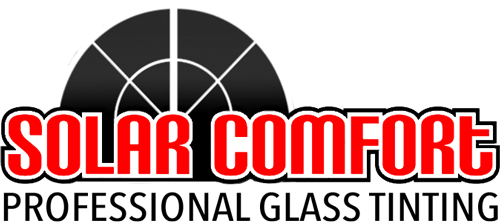Frequently Asked Questions
Generally, window film provides specific personal and property protection from the effects of the sun as well as added safety and security in the events that result in broken glass.
The efficiencies of solar control window films are closely related to local weather conditions, building orientation, window size, and other factors such as exterior shading conditions. However, with escalating energy costs, products such as window film are increasingly valuable as an investment for commercial and residential owners and commercial facility managers.
There are many types and constructions of solar control and safety window films. These films are considered in the building industry to be “retrofit” products; that is, products to be applied to existing buildings as opposed to use in new construction. In their simplest forms, window films are composed of a polyester substrate to which a scratch resistant coating is applied on one side; a mounting adhesive layer and a protective release liner is applied to the other side. When the release liner is removed, that side of the film with the adhesive is applied to the interior surface of the glass.
The efficiencies of solar control window films are closely related to local weather conditions, building orientation, window size, and other factors such as exterior shading conditions. However, with escalating energy costs, products such as window film are increasingly valuable as an investment for commercial and residential owners and commercial facility managers.
There are many types and constructions of solar control and safety window films. These films are considered in the building industry to be “retrofit” products; that is, products to be applied to existing buildings as opposed to use in new construction. In their simplest forms, window films are composed of a polyester substrate to which a scratch resistant coating is applied on one side; a mounting adhesive layer and a protective release liner is applied to the other side. When the release liner is removed, that side of the film with the adhesive is applied to the interior surface of the glass.
In response to the many requests for a statement on the benefits of installed window film products the International Window Film Association has compiled the following information. This list may not include all potential applications and depending on the product recommendations, many products will not provide all of the benefits listed. It is the responsibility of the installing dealer, as well as the informed consumer, to determine which window film product will best suit their need.
All window films typically offer:
Up to 99% Ultraviolet (UV) light reduction resulting in significant fade protection for furniture, carpet, draperies, wood, etc.
Reduced fabric/textile deterioration
Reduced exposure to UV radiation, which has been linked to certain cancers.
Increased shatter resistance resulting in:
Increased peace of mind
Increased safety for family & friends
Heavy gauge security films offer significant benefits from:
Natural disasters such as violent storms, earthquake, high winds, etc.
Vandalism, terrorist bombings, smash & grab, etc.
Scratching/graffiti (glass tagging) on exterior windows, restroom mirrors, elevator doors and glass, and similar flat/smooth surfaces
Scratch resistant hard coating protects against:
Accidental abrasion and product deterioration from normal cleaning
Hazy appearance typical with plastic type materials
Performs well in all climates
Metallized/solar control window film can provide:
Significantly reduced solar heat gain resulting in:
Increased comfort
Reduced air conditioning costs
Reduced HVAC equipment wear and tear/maintenance
Increased fade resistance
Glare reduction
Daytime privacy
Attractive accent to home and business windows
Lower energy demands from utilities resulting in:
Lower overall energy costs
Decreased demand for new power generating facilities
Decreased environmental emissions
With “Accredited Solar Control Specialist” installations you can expect:
Knowledgeable sales consultants
High quality materials and installation
Manufacturer warranties covering product failure
All window films typically offer:
Up to 99% Ultraviolet (UV) light reduction resulting in significant fade protection for furniture, carpet, draperies, wood, etc.
Reduced fabric/textile deterioration
Reduced exposure to UV radiation, which has been linked to certain cancers.
Increased shatter resistance resulting in:
Increased peace of mind
Increased safety for family & friends
Heavy gauge security films offer significant benefits from:
Natural disasters such as violent storms, earthquake, high winds, etc.
Vandalism, terrorist bombings, smash & grab, etc.
Scratching/graffiti (glass tagging) on exterior windows, restroom mirrors, elevator doors and glass, and similar flat/smooth surfaces
Scratch resistant hard coating protects against:
Accidental abrasion and product deterioration from normal cleaning
Hazy appearance typical with plastic type materials
Performs well in all climates
Metallized/solar control window film can provide:
Significantly reduced solar heat gain resulting in:
Increased comfort
Reduced air conditioning costs
Reduced HVAC equipment wear and tear/maintenance
Increased fade resistance
Glare reduction
Daytime privacy
Attractive accent to home and business windows
Lower energy demands from utilities resulting in:
Lower overall energy costs
Decreased demand for new power generating facilities
Decreased environmental emissions
With “Accredited Solar Control Specialist” installations you can expect:
Knowledgeable sales consultants
High quality materials and installation
Manufacturer warranties covering product failure
The effective life of window film will vary by the type of film, type of glass, window construction, compass orientation of glass, and in which part of the world the building is located. There are documented cases of film lasting 12 to 22 years or more in some instances. This should not, however, be assumed to be the normal expected life.
All quality window films for residential and commercial use are warranted by the film manufacturers for a minimum of five years (certain products may have extended coverage). The warranty includes an address to contact the manufacturer directly should any questions arise either before or after the installation of the window film.
All quality window films for residential and commercial use are warranted by the film manufacturers for a minimum of five years (certain products may have extended coverage). The warranty includes an address to contact the manufacturer directly should any questions arise either before or after the installation of the window film.
There are six factors affecting fabric fading:
1. Ultraviolet Light
2. Visible Light
3. Heat and Humidity
4. Chemical Vapors (including ozone)
5. Age of Fabric
6. Dye Fastness
Clear single pane glass (1/8″ to 1/4″) will reject 23-28% of the ultraviolet light from the sun. Insulated glass is slightly better, rejecting 36-41%. Window films installed on glass reject 95-99% of solar ultraviolet light.
Different types of clear glass and window systems will reject 13-29% of the solar heat. With window films, 80% solar heat rejection can be obtained.
No window film can eliminate fading. It can, however, offer maximum protection from fading due to solar ultraviolet light and solar heat.
1. Ultraviolet Light
2. Visible Light
3. Heat and Humidity
4. Chemical Vapors (including ozone)
5. Age of Fabric
6. Dye Fastness
Clear single pane glass (1/8″ to 1/4″) will reject 23-28% of the ultraviolet light from the sun. Insulated glass is slightly better, rejecting 36-41%. Window films installed on glass reject 95-99% of solar ultraviolet light.
Different types of clear glass and window systems will reject 13-29% of the solar heat. With window films, 80% solar heat rejection can be obtained.
No window film can eliminate fading. It can, however, offer maximum protection from fading due to solar ultraviolet light and solar heat.
Windows with film applied are easily cleaned without damage to their appearance as long as a few common-sense guidelines are followed:
1. Use a soft clean cloth, soft paper towel, or clean synthetic sponge.
2. Use a soft cloth or squeegee for drying the window.
3. Use any normal glass cleaning solution which contains no abrasive materials.
The availability of scratch resistant coatings as a standard feature of quality films has virtually eliminated the need for extra special precautions in cleaning.
1. Use a soft clean cloth, soft paper towel, or clean synthetic sponge.
2. Use a soft cloth or squeegee for drying the window.
3. Use any normal glass cleaning solution which contains no abrasive materials.
The availability of scratch resistant coatings as a standard feature of quality films has virtually eliminated the need for extra special precautions in cleaning.
In most cases if a house plant is already receiving adequate light the use of window film will not harm it. New growth or flowering may be retarded, and, for a few days, a plant may go into a state of shock while it adjusts to the light change. If a particular plant normally wilts by the end of a sunny day, it will actually thrive better with film installed. Although there are some obvious guidelines in determining what, if any, effect window film will have on a plant (for instance, dark green plants need less light than lighter colored ones), there is one sample test which can be done prior to film installation: merely move the plant to an area with less sunlight for a few days. In addition, most nurseries or local agriculture agencies can advise you whether a particular plant needs closer to maximal or minimal light.




